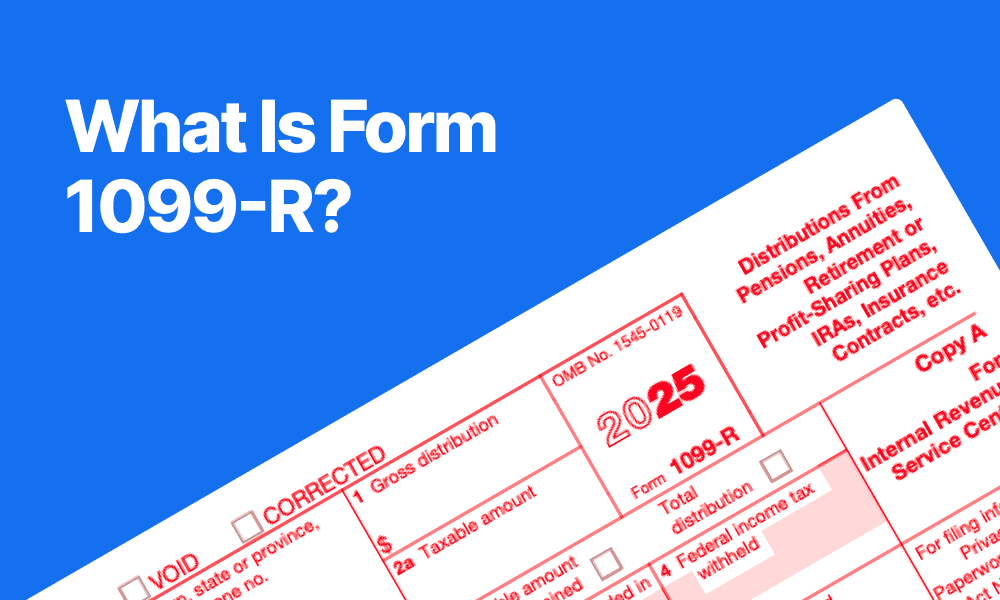Form 1099-R: What It Is, Who Gets It, and Why | TAXtical

What Is Form 1099-R? Who Gets It and Why?
If you received distributions from a retirement plan, pension, annuity, or similar source, you’ll likely encounter Form 1099-R during tax season. This important IRS form reports income you received from retirement-related sources — and it’s critical for accurate tax filing.
In this blog, we’ll cover:
What Form 1099-R is
Who receives it
Why it's important
What to do if you receive it
What Is Form 1099-R?
Form 1099-R, officially titled “Distributions From Pensions, Annuities, Retirement or Profit-Sharing Plans, IRAs, Insurance Contracts, etc.”, is a tax form used to report:
Distributions from 401(k) or 403(b) plans
Payouts from traditional IRAs or Roth IRAs
Payments from pensions, annuities, or insurance contracts
Early withdrawals or rollovers
Disability-related payouts
Any distribution of $10 or more during the tax year from these types of accounts will trigger the issuance of a 1099-R.
Who Gets Form 1099-R?
You’ll receive Form 1099-R if you:
✅ Took money out of a retirement account, pension, or annuity
✅ Received a required minimum distribution (RMD)
✅ Rolled over funds between retirement accounts
✅ Took an early withdrawal (before age 59½)
✅ Got a distribution due to disability or as a beneficiary
The payer (such as your retirement plan administrator or financial institution) is responsible for sending you the form by January 31st of the following year.
Why Is Form 1099-R Important?
Form 1099-R is essential for:
Reporting taxable retirement income
Determining whether you owe an early withdrawal penalty
Verifying rollovers and tax-free transfers
Claiming certain exemptions (e.g., disability, disaster relief)
The IRS also gets a copy of this form — so failing to report it on your tax return may trigger a mismatch and audit.
What to Do If You Receive Form 1099-R
Here’s how to handle it:
Check the details — Make sure your name, SSN, and distribution amount are accurate
Look at Box 1 (gross distribution) and Box 2a (taxable amount)
Review the distribution code in Box 7 — it explains the type of distribution and whether penalties apply
Report the income on your Form 1040 (typically on lines related to pensions or IRAs)
Common Mistakes to Avoid
❌ Ignoring a 1099-R just because you rolled funds over
❌ Misreporting the taxable amount
❌ Not understanding early withdrawal penalties
❌ Missing out on disability or disaster relief exceptions
Need Help with Form 1099-R?
TAXtical is here to help:
✔ Accurately report your retirement income
✔ Avoid costly IRS penalties
✔ Maximize any exemptions or benefits
✔ Make sense of confusing distribution codes
Whether you're a retiree, a first-time IRA user, or someone managing an inheritance, we’ll make sure your taxes are done right. 📞 Contact us today

